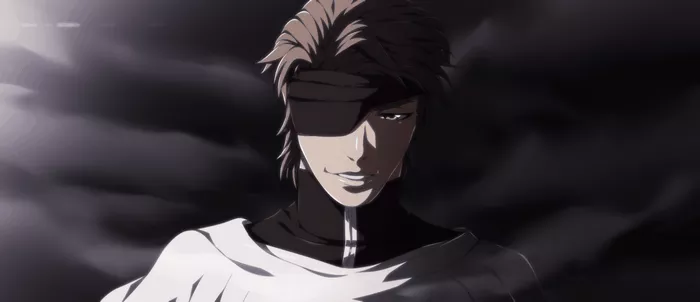In the intricate tapestry of the Bleach universe, few conflicts are as deeply entrenched and enigmatic as the animosity between Sosuke Aizen and Kisuke Urahara. Despite their shared history and intertwined destinies, Aizen’s vehement disdain towards Urahara remains a perplexing puzzle for fans and scholars alike. In this article, we delve into the depths of their relationship to unravel the mysteries behind Aizen’s profound hatred towards Urahara.
Origins of Enmity: Seeds of Discord
At the heart of Aizen’s animosity towards Urahara lie the seeds of discord sown in their shared past. Both individuals were once esteemed captains of the Gotei 13, the foremost defenders of Soul Society. However, their paths diverged drastically, catalyzed by a series of events that altered the course of their lives forever.
Betrayal and Ambition: A Clash of Ideals
One of the pivotal moments in their tumultuous relationship transpired during the Soul Society Arc, where Aizen’s betrayal sent shockwaves reverberating throughout the spiritual realm. Aizen’s insatiable thirst for power and his ruthless pursuit of the Hogyoku, a legendary artifact with the potential to transcend the boundaries of Shinigami abilities, led him down a dark and treacherous path. In his relentless quest for supremacy, Aizen manipulated and deceived those closest to him, including Urahara.
Urahara, on the other hand, stood as a stark contrast to Aizen’s ambition-fueled machinations. Renowned for his intellect, cunning, and unyielding loyalty to Soul Society, Urahara embodied the virtues of a true Shinigami. Yet, his involvement in the creation of the Hogyoku inadvertently contributed to Aizen’s descent into darkness, laying the groundwork for the deep-seated resentment that Aizen harbors towards him.
The Fall from Grace: A Divided Destiny
As Aizen’s ambitions reached their zenith, culminating in his transformation into a transcendent being known as a “Hollowfied” Shinigami, Urahara emerged as a formidable adversary, leading the charge against his former comrade. Their climactic confrontation in the Fake Karakura Town Arc marked the culmination of years of simmering tension and bitter rivalry. Despite Urahara’s valiant efforts to thwart Aizen’s malevolent schemes, the scars of betrayal and betrayal ran deep, fueling Aizen’s unrelenting hatred towards him.
Psychological Underpinnings: Unraveling Aizen’s Psyche
To comprehend the depths of Aizen’s animosity towards Urahara, one must delve into the recesses of his psyche, where the shadows of his past loom large. Aizen’s descent into darkness was not merely a manifestation of his lust for power but also a reflection of his fractured psyche and warped sense of self.
The Ego’s Dilemma: A Quest for Validation
At the core of Aizen’s persona lies a profound sense of inadequacy and insecurity, stemming from his tumultuous upbringing and his relentless pursuit of perfection. Despite his formidable talents and prodigious intellect, Aizen’s insatiable thirst for validation and recognition drove him to extreme lengths, culminating in his transformation into a being of unparalleled power and malevolence. Urahara, with his unwavering resolve and steadfast allegiance to Soul Society, represented everything that Aizen coveted yet could never attain, serving as a constant reminder of his own shortcomings and failings.
The Paradox of Betrayal: A Self-Fulfilling Prophecy
Aizen’s betrayal of Urahara and Soul Society was not merely an act of treachery but also a desperate attempt to break free from the shackles of his own insecurities and limitations. By forsaking his comrades and embracing the darkness within, Aizen sought to transcend the confines of mortality and ascend to the pinnacle of existence. However, his quest for supremacy ultimately proved to be his undoing, as his fractured psyche and delusions of grandeur consumed him from within, leaving behind a hollow shell of his former self.
Redemption and Reconciliation: A Glimmer of Hope
Despite the seemingly irreconcilable rift between Aizen and Urahara, glimpses of redemption and reconciliation emerge amidst the chaos and carnage of their tumultuous relationship. In the aftermath of Aizen’s defeat and imprisonment, both individuals are forced to confront the consequences of their actions and come to terms with the ghosts of their past.
The Road to Atonement: A Journey of Self-Discovery
For Aizen, imprisonment serves as a crucible of self-reflection and introspection, as he grapples with the demons of his own making and confronts the ramifications of his descent into darkness. Through his interactions with Ichigo Kurosaki and other denizens of Soul Society, Aizen begins to question the validity of his own convictions and reassess his place in the grand tapestry of existence. In the twilight of his captivity, Aizen finds solace in the realization that true power lies not in domination and subjugation but in acceptance and self-awareness.
Forging New Bonds: A Beacon of Hope
Meanwhile, Urahara emerges as a guiding light amidst the darkness, extending a hand of forgiveness and understanding to his former adversary. Despite the scars of betrayal and betrayal that mar their relationship, Urahara recognizes the inherent humanity within Aizen and acknowledges the potential for redemption and renewal. In the crucible of adversity, Aizen and Urahara find common ground, forging new bonds of camaraderie and mutual respect that transcend the boundaries of enmity and strife.
Conclusion: A Tale of Redemption and Reconciliation
In the annals of Bleach lore, the enigmatic relationship between Aizen and Urahara stands as a testament to the complexities of the human psyche and the enduring power of redemption and reconciliation. Despite the chasms of animosity and resentment that divide them, Aizen and Urahara are bound by a shared history and intertwined destinies, forever entwined in the tapestry of fate.
As the wheels of destiny continue to turn and new challenges loom on the horizon, Aizen and Urahara stand poised at the precipice of a new chapter in their tumultuous relationship. Whether they will succumb to the shadows of their past or rise above adversity to embrace a brighter future remains to be seen. But one thing is certain – the enigma of Aizen’s hatred towards Urahara will continue to captivate and intrigue fans for generations to come, serving as a timeless reminder of the enduring power of the human spirit to overcome even the darkest of adversities.


